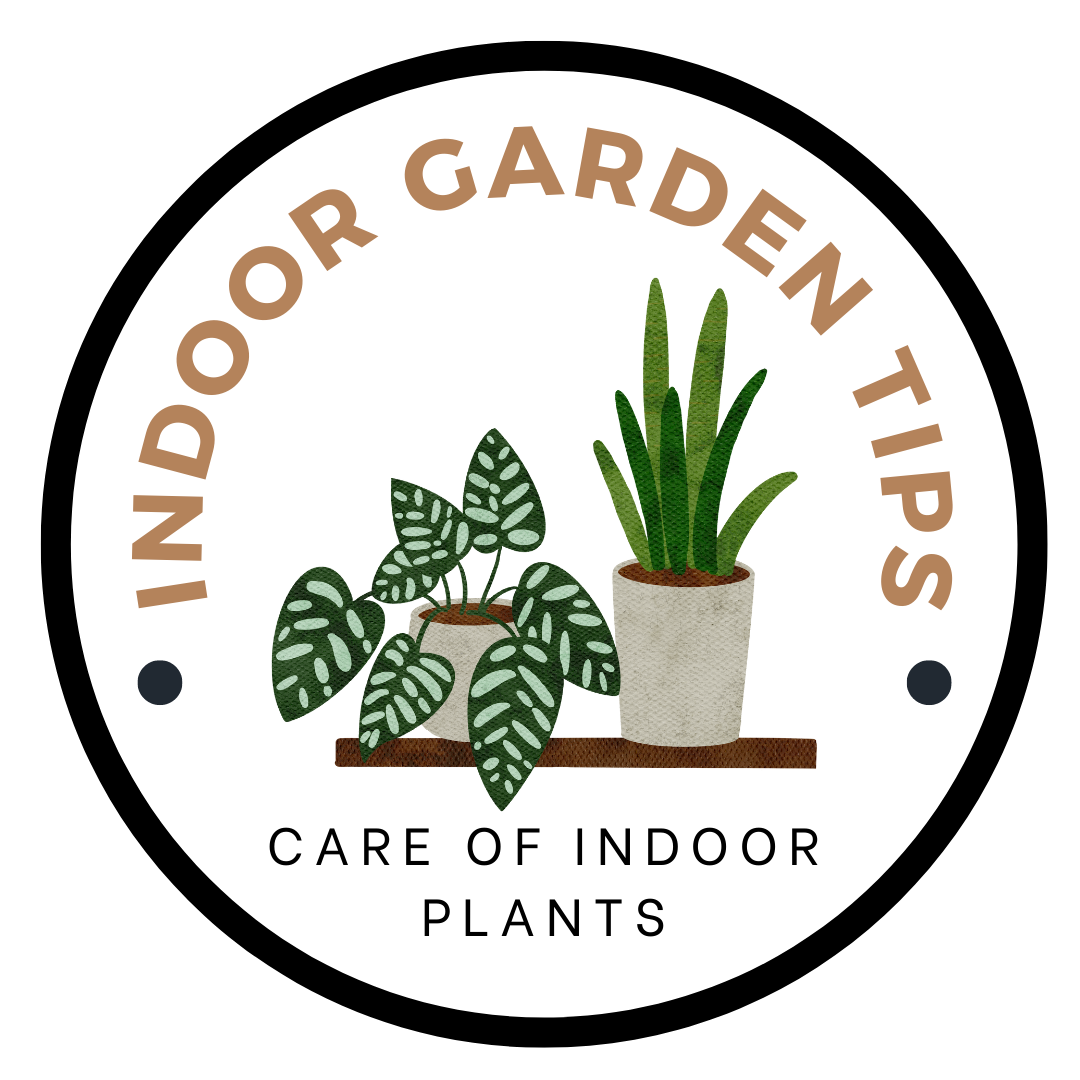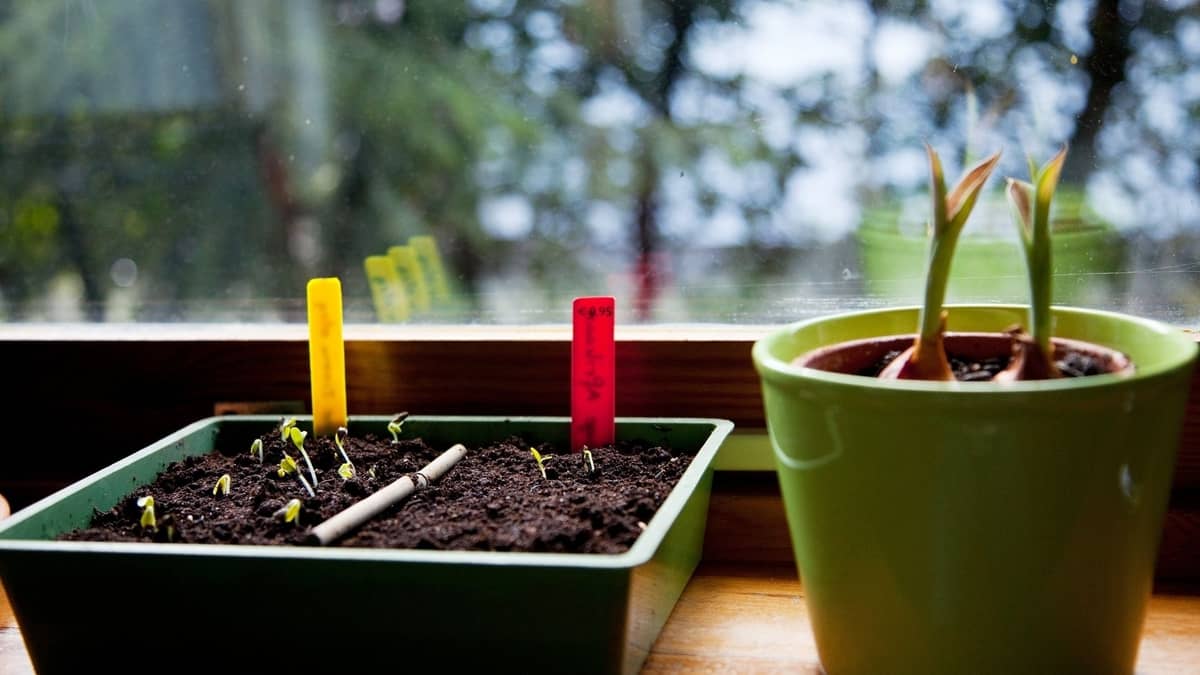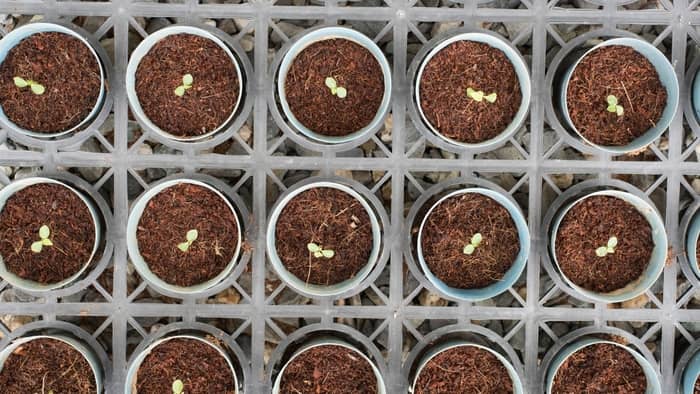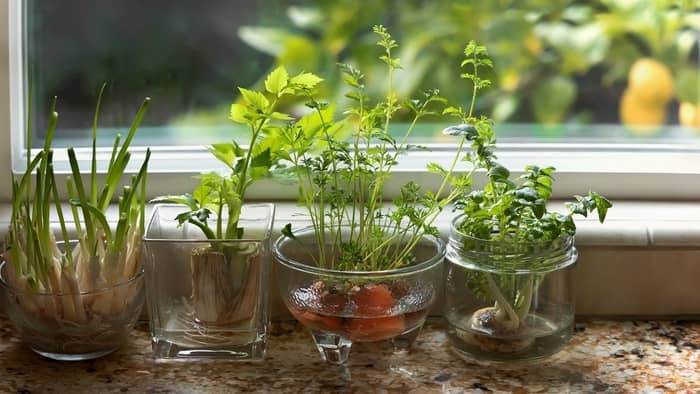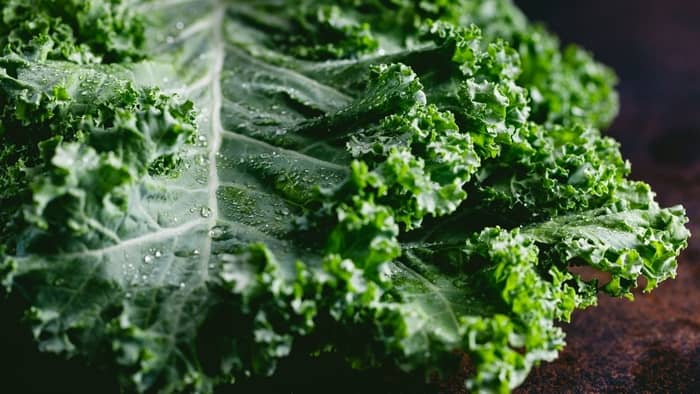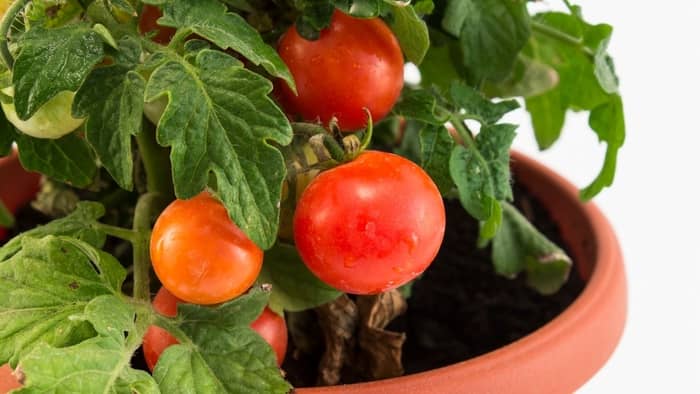Last Updated on January 16, 2022 by Guillermina
Did you know that you can enjoy home-grown vegetables all year round? Click and learn all about growing vegetable plants from seeds indoors.
Are you thinking of growing vegetable plants from seeds indoors, but you are worried that it is too difficult or that it will not work? We will reveal the secret to you, you are not alone! However, don’t let fear distract you from enjoying the sweet fruits of your labor.
Therefore, keep reading to find out how and when to start seeds indoors, as well as which vegetables should be started indoors.
Why Start Growing Vegetable Plants From Seeds Indoors?
The first step you need to take is to decide whether you want to start your garden from seeds or from young plants (“transplants”) from a local nursery.
Buying a transplant is certainly much easier and more practical. However, you are limited by variations of plants and flowers. Seeds, on the other hand, offer a much wider range of varieties.
These are the things you need to pay attention to:
- Buying seeds is usually cheaper than buying individual seedlings from nurseries.
- By planting the seeds you have control over the way the young plant is grown.
- The seeds offer a wider selection of varieties, flavors, and textures.
After all, it is not a bad idea for beginners to start with already established plants. This shortens the time that would be spent on germination and reduces the amount of plant care.
When Should I Start Planting Vegetable Seeds Indoors?
The most important thing is to know the date of the last possible frost in the place where you live. As a rule, most annual vegetables should be sown six weeks before the last frost.
In addition, try to avoid premature sowing as you will eventually have to transplant the seedlings into larger pots multiple times. Finally, the seed package will often indicate when the seed should start indoors.
Easiest Vegetable Plants To Grow From Seed Indoors
As you might have guessed, not all seeds should be grown indoors. In fact, most of them do perfectly well when grown outdoors. The most important thing is to consider how each type of vegetable grows and what kind of care it requires.
Keep reading to find out which seeds you should start indoors.
Carrots
Carrots do not require much space in width, but therefore require a deeper container compared to other plants. They are resistant to cold and require about 12 hours of sun each day.
Green Onions/Scallions
Green onions are great for growing indoors because they don’t require as much sunlight and/or maintenance as some other veggies. As for planting, you can use the seed or transplant its root after using the top.
Herbs
The main rule when growing herbs indoors is to provide them with 12-16 hours of sun a day. You can choose from chives, parsley, cilantro, oregano, mint, rosemary, sage, thyme, etc. The possibilities are endless.
Hot Peppers
Peppers are tropical plants, so it is not surprising that they thrive indoors. The only thing you need to pay attention to is to provide them with a high level of light, somewhere between 14-20 hours a day.
Leafy Salad Greens
Leafy salad greens such as spinach, kale, and arugula grow in four weeks in compact spaces. They also prefer about 12 hours of sunlight per day.
Microgreens
Did you know that microgreens contain 40 times more vitamins and nutrients than fully grown plants? As for care, it is identical to the above leaf salads. Also, they are ideal for picking within 2-3 weeks.
Potatoes
* This is true for both sweet and regular potatoes. It is best to start with sprouted potatoes by cutting them into pieces and laying them face up on at least four inches of soil. In about two months you will be able to enjoy your delicious homemade dishes.
Radishes
Did you know that it takes just over 30 days from sprouting to harvesting radishes? Best of all, they don’t need too much light but do need enough space for their bulbs to grow.
Tomatoes
Tomatoes are known as warm-weather-loving plants. So, try to provide them with about 14 to 20 hours of sunshine a day. If you choose to grow from seed, you will be surprised at how fast they grow.
How Long Does It Take For Vegetable Seeds To Sprout Indoors?
Although it might sometimes seem like an eternity, in most cases the seeds will germinate within three weeks.
The rule is – the warmer the environment, the faster germination. So, the best temperature for growing your plants indoors is 18 to 24 °C (64 to 75 °F). For example, mini tomatoes, chili peppers, and rosemary usually germinate after 3 weeks. On the other hand, lettuce plants are very sensitive to high temperatures, and that can affect the process.
Simple Steps For Growing Vegetable Plants From Seeds Indoors
- Fill your containers with multi-purpose potting mix or seed compost. Avoid plain soil as it is not fine enough and does not allow free root growth as well as oxygen flow.
- Then make shallow indentations with your fingertips and plant the seeds to a depth suggested by the instructions on the package. Finally, sift some more pot mixture over the top.
- Loosely cover the containers with plastic or some other waterproof cover to avoid drying out. Don’t forget to poke a few holes for ventilation as well.
- Try to mist them regularly (with water) to provide them with optimal moisture levels.
- When the seedlings start to appear remove the cover and place the pot next to the window or under artificial grow lights.
To Wrap Things Up
Growing vegetable plants from seeds indoors can be a difficult process. However, can you imagine how amazing it feels to plant a tiny seed and watch it turn into a beautiful mature plant? Remember, you only need dedication, attention, and time to make this process successful.
So, start your seed indoors this year, and this could be an amazing season! If you have questions, write to us in the section below. We are expecting you.
Read more about how to keep tall grasses from falling over?
